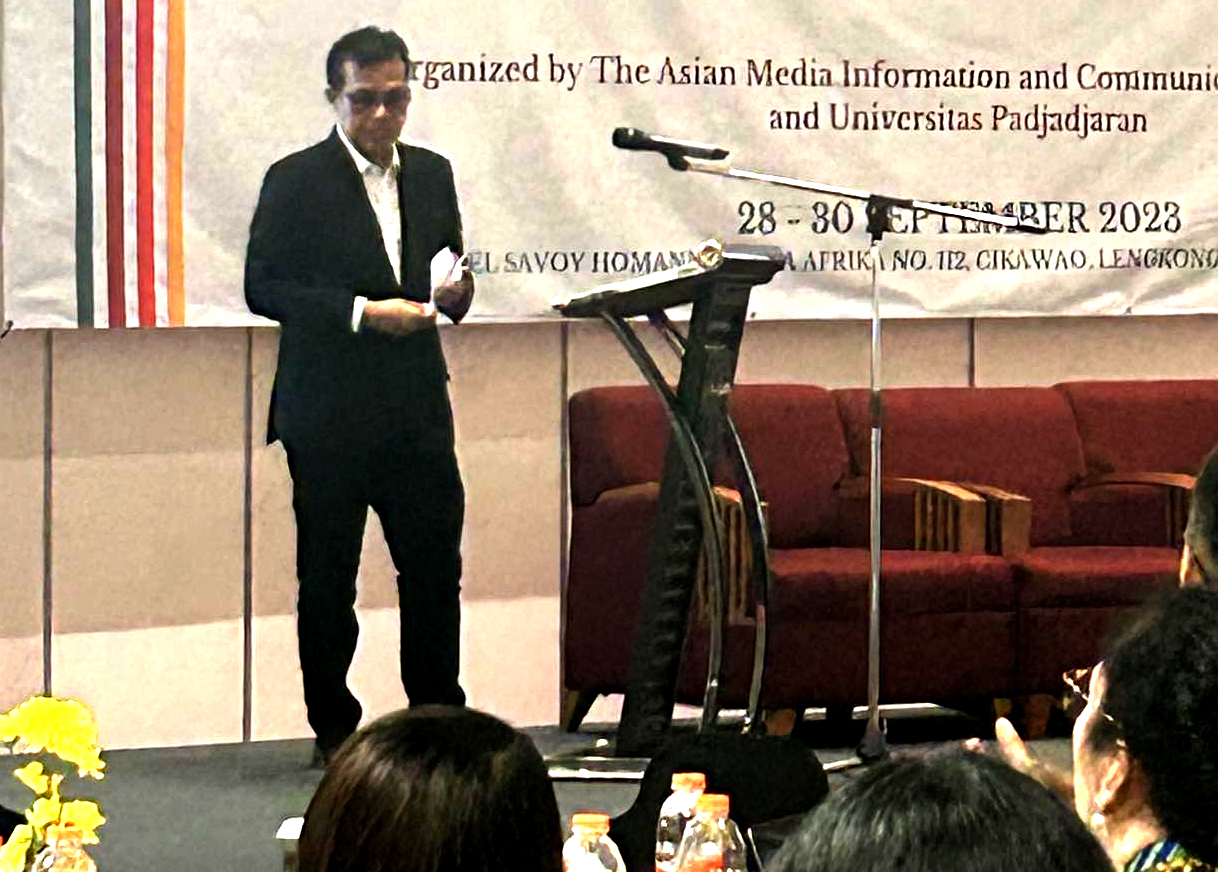Indonesia’s Vice Minister of Communications and Informatics Calls on Academia, Governments to Collaborate

In light of fast-paced developments in communication, technology, and education, the academia must collaborate with governments and communities for stronger research mindsets and digital literacy skills.
Nezar Patria, Indonesia’s Vice Minister for Communications and Informatics stressed this point in his keynote address at the 29th Annual Conference of the Asian Media Information and Communication Centre held last 28 to 30 September in Bandung, Indonesia.
Patria traced the global evolution of communication studies, emphasizing the big shift from using symbols, alphabet and writing, to telephone, computer, and the internet.
In fact, he said, in 2023 alone, there are 5.16B internet users globally, representing 64.6% of the entire world population. He added that the COVID-19 pandemic has brought “…a major disruption in the development of communication technologies and the spread of the internet.”
He also recognized that the pace by which everything is happening has led to the emergence of new programs in communication studies worldwide. These include courses in Digital Communications, Digital Media and Marketing, Digital Journalism and Media, Strategic Communication: AI, Cognition and Culture, Artificial Intelligence for Media, among others.
These developments have similarly led to new career prospects in digital-related communication studies, opening employment opportunities for digital marketing specialists, social media specialists, copywriters for social media, and AI analysts for media, to name a few.
Still, Patria said, there are emerging issues in communication studies that need to be addressed. The first is the utilization of technology such as AI for communication work, data privacy concerns, data-driven communication strategies, and ethics. The second issue relates to social media and communications where concerns on digital safe space, digital literacy, use of social media for social movements, misinformation, disinformation, and hoax abound.
Patria recommended stronger collaboration between the academia and government where research findings can be shared “to formulate strategic public communication messages for government and industry.” He also called on both parties to work together to increase “literacy and digital skills through massive campaign and socialization of Gerakan Nasional Literasi Digital (GNLD) – National Movement on Digital Literacy and many other stakeholders to support Pemilu Damai / Peaceful Election 2024 agenda.” (END)
